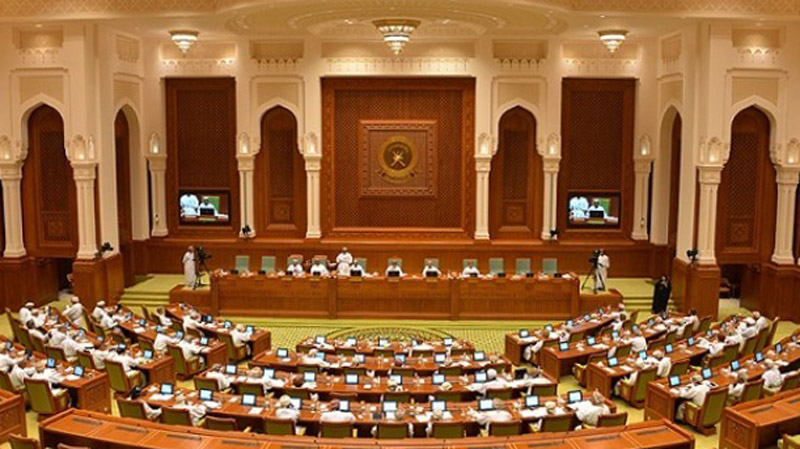
Majlis A’Shura has an important role in making laws.
The Majlis A’Shura (Shura Council) consists of 86 members elected by direct, secret vote to represent all the Wilayats (provinces) of the Sultanate. All Omanis over the age of 21, men and women, may vote.
The membership of the Council is determined so that each Wilayat (province) is represented by one member if its population is less than 30,000, and two members when the state’s population is more than 30,000.
Legislative role
The Council of Ministers refers a draft law to the Majlis A’Shura (Shura Council), which must approve or amend it within three months. The draft law is then referred to the Majlis A’Dawla (State Council) to approve or amend, as it sees fit.
If the Majlis A’Shura and the Majlis A’Dawla disagree a vote is held in joint session to resolve the issue. Any bill passed by both councils must be approved by His Majesty the Sultan to become law.
The Majlis A’Shura has the power to propose legislation and make other recommendations to the Government and to participate in the drafting of the five-year development plan.
Other responsibilities
Under the Law of the Oman Council Majlis A’Shura exercises important powers of follow-up.
These include urgent statements, whereby each member may make a statement before the Shura Council on an urgent and important matter related to the public interest of the country.
In addition, each member of the Shura Council may request in writing that the Speaker of the Council inform the government of a matter of urgent importance.
Members may also request the government to provide the Council with information to help it to exercise its responsibilities.
The Majlis A’Shura may, of its own accord and whenever it determines that the public interest requires it, express its desires to the government in matters related to the development and performance of public services or with regard to economic obstacles and to promote development.
Members of the Majlis A’Shura also have the right to direct questions to Ministers. Based on a request from five members which is approved by a majority of the Shura Council, general issues falling within its jurisdiction may be raised for discussion with Ministers.
In addition, any fifteen members of the Shura Council may request to question any Minister about an exceeding of his or her legal powers.
Ministers must provide the Shura Council with an annual report on the implementation of projects by the ministries they head. The council may invite any such Minister to present a statement to them and discuss it with them.


